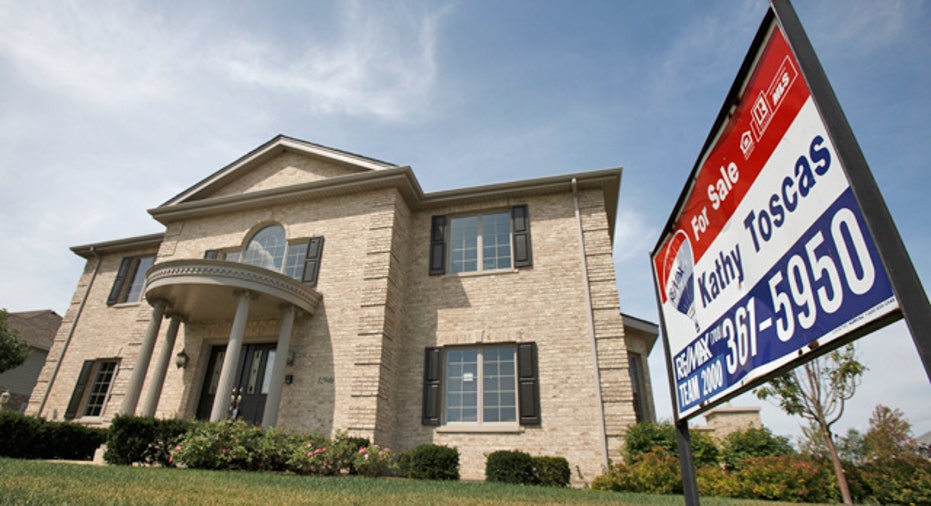The Differences Between Buying a New Home and Buying a New Car

When you drive a new car off the lot, it immediately loses some of its value. Does the same apply to real estate? And if so, should you care?
For years, the new construction and development market has been sluggish. But now, banks are lending again for new construction, and developers are ready to build in full force. In major cities such as New York and San Francisco dozens of new projects are in some phase of planning, construction, development and sale. In the suburbs and country, national home builders with large parcels of land are ready to develop communities of new homes.
Buyers in any market are faced with the decision to buy a “used” home vs. a new one, of course. But it’s becoming a little more likely today that buyers will find brand-new homes from which to choose as well as pre-existing ones. Here are some things to consider when you face that choice.
Real estate generally appreciates
Any chart will show you that real estate values typically rise over a long period of time. So if you’re in it for the long haul and can commit to at least five or 10 years, don’t be overly concerned with your home’s resale value. On the other hand, in today’s highly mobile world, it might be more difficult to realize an increase in your home’s value if you sell too soon. If you’re not sure you can commit to a home, new or used, for at least five years, you might be better off renting.
Does the new car theory ever apply?
If you’re selling a home that’s five to 10 years old, you might think such a property is still “new,” and you shouldn’t have a problem selling. However, a buyer choosing between a brand-new home and a “used” one may go for the newer one if they can afford it. So, given two homes with similar floor plans and locations, the newer one should sell for more. The owner of the older home, then, might believe the new car rule — that the purchase depreciates in value over time — does in fact apply to real estate.
The reality is, you just can’t compare your home’s value to that of a newer home; it’s not an apples-to-apples comparison. Though your home’s value may be less than what a nearby new property sells for, it’s important to consider your original purchase price. At the time you bought your home, that price was based on the fact it was new, as well as the values associated with a new home vs. an older home. The bottom line: Though your home may not be worth as much as a brand-new, comparable home, it has most likely appreciated from the time you bought it, along with the larger market.
Maintenance of a new vs. an existing home
A new home comes with warranties not only on the appliances and systems but often from the developer as well. A good developer will stand by his work for at least one year. That means if there is a leaky window or a broken tile or floorboard, the developer would likely remedy the situation at no cost to you. Though a home warranty is always available through a third party, a buyer of a home that’s five years old likely won’t benefit from the original manufacturer’s warranties in place at the time the home was built.
Many buyers don’t want the headaches associated with a 50- or 100-year-old home. However, there’s some truth to the old saying that “they just don’t make homes like they used to anymore.” For example, it would be nearly impossible, let alone financially unfeasible, for a builder today to construct an Italian Stick Victorian home or a Frank Lloyd Wright-style house. And so, there’s inherent value in owning a historic home. There are fewer of them, and their uniqueness will set them apart. When the buyer goes to sell, she’s likely to find the home is worth more than other comparable, newer properties. Conversely, if you’re selling a 2-bedroom, 2-bath standard floor plan home, you’ll probably be competing with other homes built with similar materials and within the same time period. You’ll need to do something to make your home stand out and be more attractive to buyers.
Home first, investment second
Obviously, the fact that a brand-new car loses some value the moment it’s driven off the lot doesn’t stop people from buying new cars. Nor should it. There’s something to be said for that new-car smell, for the extended warranty it comes with, for being the first to own it. Many people spend a lot of time in their cars. They see it as a necessity, something they should enjoy and be comfortable in.
The same is true for a home. While it’s important to understand its value and your investment over time, don’t obsess over it. If the home is right for you given your situation and your timing, that’s the home you should buy, whether it’s new or old. You’ll be spending a lot of time and making many memories there. It’s where you’ll lay your head at night after a hectic workday or long business trip. It’s your home first and an investment second.
Read More From Zillow:



















